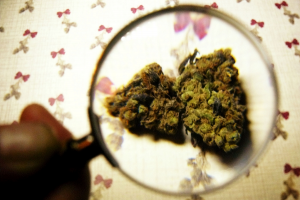The Pennsylvania Legislature is taking a serious look at reducing first and second offenses for marijuana possession from a misdemeanor to a simple violation, at least partly in the hopes of saving law enforcement officials from having to spend significant amounts of time processing such cases.
But some lawmakers opposed to the proposed legislation argue that it holds the possibility of exacerbating drug use in the state at a time when it is struggling with an opioid epidemic.
Proposed by state Rep. Barry Jozwiak, R-Reading, House Bill 928 sparked a fair amount of debate when it was considered in the House Judiciary Committee recently. Anyone arrested for the first or second time with less than 30 grams of marijuana would face a citation and a fine of $300. Only for the third and subsequent offense would it rise to a misdemeanor carrying penalties of up to 30 days incarceration, a $500 fine or both.
Rep. Jerry Knowles, R-Tamaqua, offered an amendment that would make any local ordinances providing for even lesser penalties “null and void” and protect police officers from facing any repercussions for enforcing the state law. Jozwiak opposed the amendment, saying the underlying bill already established that local ordinances in conflict with the legislation would be invalidated.
Jozwiak’s position was supported by Rep. Dom Costa, D-Pittsburgh, who suggested that the Knowles amendment might be an impediment to the bill’s ultimate passage.
“It’s already in law,” he said. “It already states that [municipalities] can’t do it, and that will be decided later on by the courts. I don’t want to have anything obstruct this bill going through.”
After his amendment failed to pass, Knowles assailed the legislation as another creeping step toward the wholesale legalization of marijuana use in Pennsylvania.
“[It’s said that] some people who voted for medical marijuana did so because they saw that as the first step in legalization,” he said. “I never really said that, but I would say that this is the second step in legalization. You are watering down the law. … In a time where we are dealing with a heroin problem and with a serious drug problem, we’re going to water down the law?”
Knowles went on to say that as a former police officer, he speaks frequently with members of law enforcement and that they uniformly opposed the concept behind the bill.
“Talk to your local law enforcement,” he said. “Talk to state police, talk to local cops, talk to sheriffs. Those that I have talked to do not support this.”
Jozwiak replied that the impetus for the bill came from the district attorney of Berks County, and contrary to Knowles’ assertion, law enforcement stands to benefit.
“I know my colleague said he was a law enforcement officer,” Jozwiak said. “Well, so was I. And I was a law enforcement officer many more years than my colleague. And I can tell you, on the street today, police are looking to issue citations for minor offenses, not be tied up in court, not cost $40 million a year in Pennsylvania to prosecute these people.”
Costa, who also was a police officer before becoming a politician, once again backed Jozwiak.
“I was the chief of police in the city of Pittsburgh,” he said. “I know what it costs to send officers to court for these simple charges. I know the overtime, I know the massive amount of people, police officers off the street because they’re in court over something that could be handled with a citation.”
The Knowles amendment failed on an 8-16 vote, while the underlying bill was advanced to the full House on a 20-4 vote.









